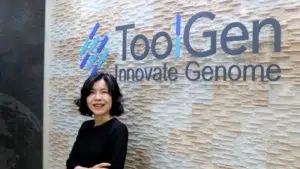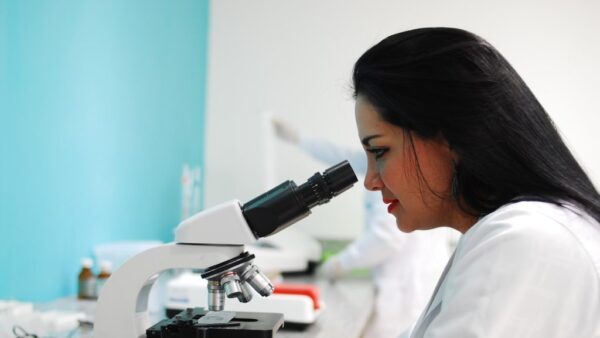The Netherlands is a hot spot in both plant research and plant breeding. Both public and private researchers have a stake in the development of several methodologies and the political debate about their application in breeding programs has been ongoing. The Dutch parliament has adopted positions that products of cisgenesis and mutation breeding applications of CRISPR-Cas9 should not be regulated under the law concerning genetic modification. This is now official government policy. However, a proposal to implement that policy, created a lot of debate this summer. A broad discussion about the future of biotechnology is currently ongoing.
The Netherlands is a hotspot in plant research and plant breeding. Leiden University had a big stake together with the University of Ghent in Belgium in the development of transgenesis and several of the currently debated breeding techniques were ‘invented here’. At the practical level, the Netherlands is the number 1 applicant of plant breeders’ rights with well over 1,000 new varieties registered each year. This is not a new phenomenon: the Dutch saw good business in flowers back in the 17th century when vast prices were paid for tulip bulbs – a novelty at that time in this part of the world. This “tulipmania” was short-lived though. Around 1800 however, a thriving vegetable seed business emerged within families that are still central in the business. Also in potato, a vast range of ornamentals, forages and some smaller field crops, the Netherlands reputation in plant research and breeding attracts talent from all over the world.
Technological developments
The development of novel methods to make plant breeding more efficient and effective receives a lot of attention of both public and private researchers. Cisgenesis has been operationalised at Wageningen University on crops like apple and potato; private Dutch companies have been at the forefront of the development of the gene editing technology ODM and of reverse breeding. Having such a significant knowledge base in the country helps to stir the public debate around the use of such innovations in plant breeding. The government sponsored programme to develop resistance management strategies for potato late blight Phytophthora infestans through cis-genesis also included a task for the university to support a public debate around the project. The project created an alternative to the currently used fungicides (up to 16 field sprays per season). Furthermore, through the stacking of resistance genes, it showed a vision towards sustainable resistance management. This resonated well with the public.
[tweetshareinline tweet=”Having a significant knowledge base in the country helps to stir the public debate around the use of plant breeding innovation.” username=”EuropeanSeed”]
Political response
The promise of environmental benefits of these cis-genic potatoes spurred the Dutch Parliament to call upon the government in 2013 to achieve policies in Brussels that would avoid that products of cis-genesis would fall under by European Directive 2001/18/EC on GMO’s. This has not convinced the European Commission though to take appropriate action.
Further technological developments triggered the adoption of a new resolution by the Dutch parliament in December 2016:
“- whereas more and more new breeding techniques are becoming available and development is accelerating;
– whereas new breeding techniques can contribute to the resilience of the crop against diseases, pests and a sustainable future for agriculture, food safety and food security;
– whereas the use of new breeding techniques is crucial for our breeding sector;
– whereas CRISPR / Cas9 is a new technique that does not require the use of external genes;
Calls on the government, to focus on an exemption from the GMO regulations for the use of the CRISPR / Cas9 technique for targeted plant mutations, as long as such plants could also have been established through classical breeding;
In addition, calls on the government to encourage an early decision on new breeding techniques in relation to GMO legislation”
Proposal
Based on this resolution, the relevant ministries responsible for the environment and agriculture determined in July 2017 that the best way to ‘free’ such products from unnecessary regulation would be to amend the Annex 1b of Directive 2001/18/EC. Their aim was also to create a solution as quickly as possible and to make the regulation more future-proof in the light of the rapid technological developments.
The proposal was to add to the techniques already mentioned in Annex 1b, “techniques, methods or applications thereof resulting in plants, provided that:
- no other genetic material is introduced into the resulting plant than genetic material from the same plant species or from a plant species with which it can exchange genetic material through traditional breeding methods, and
- recombinant nucleic acid molecules that are used for or during modification are no longer present in the resulting plant that is meant for deliberate introduction into the environment.
When this idea was presented to a stakeholder meeting, the general opinion was that the goals were broadly supported, not the method. Adapting Annex 1b would likely take many years, because it was expected that the change of 2001/18/EC could not be limited to the text of Annex 1b alone. Opening the Directive would invite a vast number of proposals to adapt the main text from many sources, including on medical and industrial biotechnology applications. Still, the two ministries went ahead and organised a meeting with the EU member states early September. This did not create broad support for a variety of reasons – above all the observation that it would be very difficult for the European Commission to support any proposal given a relevant case that is currently pending before the European Court of Justice. The ruling in this case might provide further interpretation of the term ‘mutagenesis’.
[tweetshareinline tweet=”The Netherlands will commit itself in Europe to the application and admission of new breeding techniques, such as CRISPR-Cas9, provided that no species-borders are crossed.” username=”EuropeanSeed”]
Current situation
In early 2017, the ministry responsible for the GMO-dossier has started the planning for a public consultation which was launched in December under the title “Towards a future-proof biotechnology policy”, which entails red, white and green biotechnology. It launched a website, hosted by the science museum NEMO in Amsterdam, at www.biotechnologie.nl.
The four parties forming the new Cabinet on October 10th, 2017, stated in their Coalition Agreement that “The Netherlands will commit itself in Europe to the application and admission of new breeding techniques, such as CRISPR-Cas9, provided that no species-borders are crossed”. The breeding sector is therefore confident that this government will aim at steering the debate in the European Union towards this outcome with regard to gene editing and cisgenesis.
By: Niels Louwaars of Plantum













